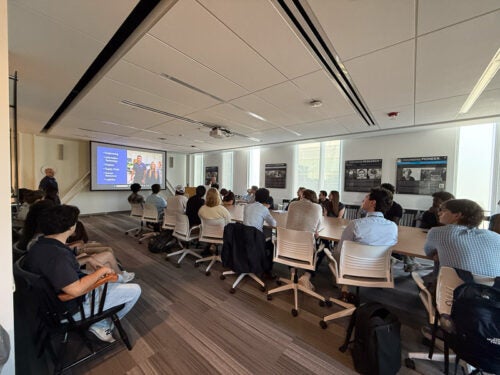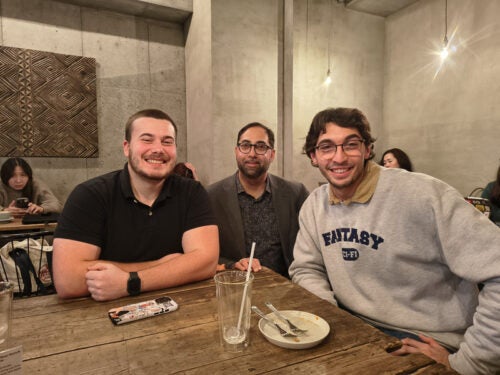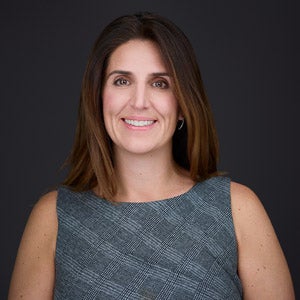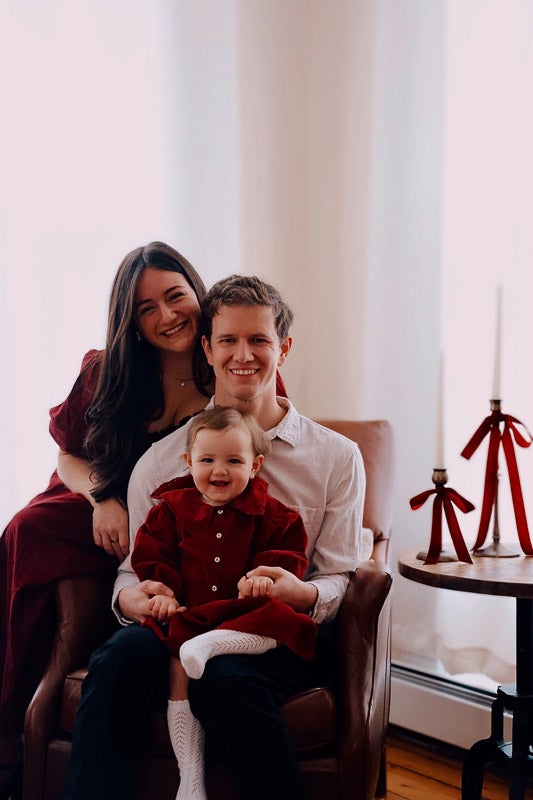IEP alumni share some of their recent highlights and accomplishments. Additionally, we call attention to the efforts of others in service to the IEP.
Fall 2025 Alumni Engagement

One of our IEP alumni, Shawn Drew ’10 (German IEP & mechanical engineering) and his colleague Paul Sinanian hosted a special BMW Manufacturing Co., LLC session for IEP/IBP/ICSP and other engineering students before the career fair. Drew had participated in BMW’s PACE rotational training program in Spartanburg, SC, following his time in the International Engineering Program. Now, he is helping to grow the established pipeline of URI applicants, particularly those from the IEP/IBP/ICSP, encouraging each year a new generation to follow in his footsteps at BMW. It’s the circle of life moments like these that really speak to the power of the IEP network!
Over the last few months, alumna Kaylen Hayley ’04 (German IEP & biomedical engineering) has helped the IEP to create a slide deck to be shared with potential internship sponsors. While the immediate impact is to be able to pitch the program within her current company, Olympus, which has teams based in Massachusetts, Hamburg, Germany and Tokyo, Japan, this new slide deck will hopefully serve as a tool to assist the IEP in placing interns with other companies and in a wider variety of locations as well.

With our large cohort of Japanese IEP students currently abroad, Nevan Hanumara ’04 (French IEP & mechanical engineering, IEP board member) has also made an effort to initiate some new partnerships as an ambassador of the program. While in Japan in fall of 2025, he visited with a couple of our students there and reached out to his business/research associates to drum up interest in becoming internship hosts. Additionally John Ellwood ’06, ’08 (German IEP & mechanical engineering; MS URI/TU Braunschweig; Dr. Ing. TUBS ’14) who has previously hosted our German IEP interns at Siemens Healthineers in Forchheim, is now managing director of Acrorad in Uruma (Okinawa), Japan. In his new role, Ellwood is also making an effort to introduce the IEP internship model to his own and other companies.
Alumni Updates
Meghan Soens ’05
Spanish IEP & Biomedical Engineering

Boston Scientific, Massachusetts – Meghan Soens recently was promoted to VP & Global General Manager for Endoscopy division at Boston Scientific. In this role she will continue to lead US Sales, and will assume additional commercial responsibilities, including sales operations and global marketing, where she will be responsible for the full product lifecycle – from innovation and concept ideation to commercial execution.
Over her 15-year tenure at Boston Scientific, Meghan has held a variety of sales and marketing leadership positions in both the U.S. and EMEA with increasing scope and responsibility, including roles in both Endoscopy and Urology. She has also guided teams through organizational growth, managed cross-functional projects, and led marketing, professional education and sales operations in EMEA. Prior to BSC, Meghan held R&D and marketing roles at Baxter Healthcare and Kimberly-Clark Corporation. Meghan is a 2005 graduate of the URI IEP program, holding a BS in Electrical Engineering, BS Biomedical Engineering and a BA in Spanish. Meghan also received her MBA in 2010 from Kellogg School of Management.
Jean-Francois Brehany ’18
German IEP & Mechanical Engineering

Bristol, RI – My wife and I have a daughter and are now expecting daughter #2 in May. I have also recently changed careers (June 2025) to focus on residential construction.
Nicolas Vad ’24 & Niklas Lariviere ’25
Mechanical Engineering URI/TU Darmstadt Dual Master’s Program
Two recent graduates from the TU Darmstadt /URI dual master’s program in mechanical engineering, Nicolas Vad ’24 and Niklas Lariviere ’25 saw the hard work of their master’s theses in the area of renewable energy, more precisely the value chain of hydrogen emissions, come to fruition. Supervised by Dean of Engineering Anthony Marchese, the two are now co-authors of publications in peer-reviewed journals. It’s great to see the long-term impact of our graduate mobility partnership! For more information on the first detailed value chain hydrogen emissions inventory papers, read Nicolas Vad’s Linkedin post here.
